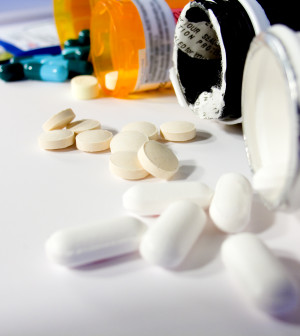- Could Your Grocery Store Meat Be Causing Recurring UTIs?
- Are You Making This Expensive Thermostat Error This Winter?
- Recognizing the Signs of Hypothyroidism
- 10 Strategies to Overcome Insomnia
- Could Artificial Sweeteners Be Aging the Brain Faster?
- Techniques for Soothing Your Nervous System
- Does the Water in Your House Smell Funny? Here’s Why
- Can a Daily Dose of Apple Cider Vinegar Actually Aid Weight Loss?
- 6 Health Beverages That Can Actually Spike Your Blood Sugar
- Treatment Options for Social Anxiety Disorder
Clot-Busting Drug May Be Safe for Those With ‘Wake-Up’ Strokes


The clot-busting drug known as tPA appears safe for those who wake up in the morning to find they’ve had a stroke, a small new study suggests.
Many people with these “wake-up strokes” do not receive tPA (tissue plasminogen activator) because of restrictions on its use to within three hours of the start of stroke symptoms.
That’s because for most patients who realize they have stroke symptoms upon waking, it’s unclear just how long ago the stroke occurred.
“There is a time limit of three hours [4.5 hours in select patients] to treat people with acute stroke with intravenous tPA, because there is an increased incidence of hemorrhage in patients treated outside the time window,” explained one expert, Dr. Rafael Alexander Ortiz.
Up till now, “in patients that complain of stroke symptoms at the time of waking up, it has been determined that the risk of treatment with tPA outweighs the benefit,” said Ortiz, who is director of interventional neuroradiology and stroke at Lenox Hill Hospital in New York City.
The new study was led by Dr. Andrew Barreto of The University of Texas Health Science Center at Houston. In the study, 40 patients with moderate-to-severe wake-up stroke received tPA, at an average of 2.6 hours after waking up with stroke symptoms.
The Houston team report that none of the patients suffered brain bleeding, which is the worst side effect that can occur with tPA. After 90 days, half of the patients were also fully recovered from their stroke.
Based on the findings, the authors contend that tPA treatment may be safe in patients with wake-up stroke. But they stressed that the use of the drug in these patients should be assessed in a larger clinical trial.
Ortiz, who was not involved in the study, agreed.
The small trial “suggests safety — with significant benefit — of tPA in a small group of patients,” he said, but “a more comprehensive study is suggested for a more conclusive statement.”
The study was to be presented Thursday at the American Stroke Association’s annual meeting in Nashville, Tenn. Experts note that findings presented at medical meetings are typically considered preliminary until published in a peer-reviewed journal.
More information
The American Heart Association/American Stroke Association has more about stroke treatments.
Source: HealthDay
Copyright © 2026 HealthDay. All rights reserved.










